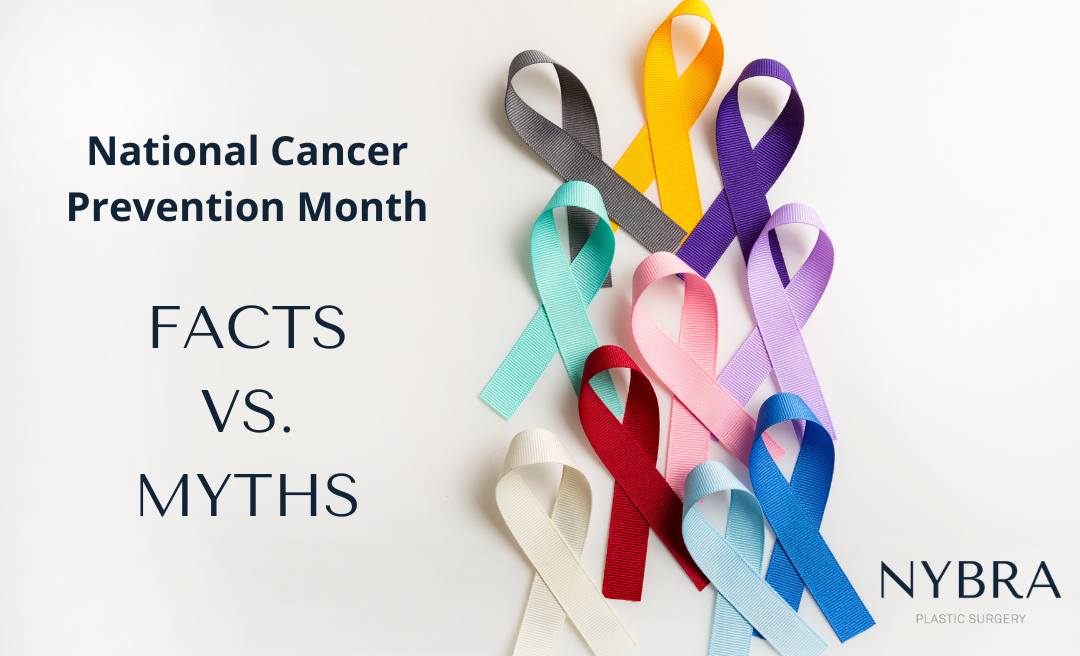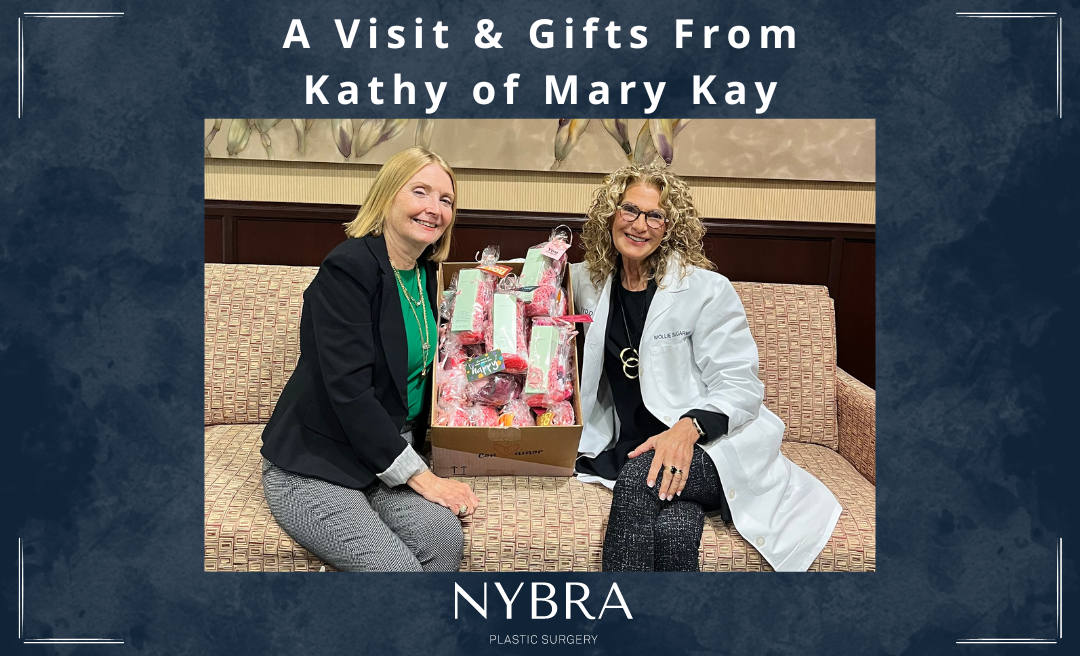February is National Cancer Prevention Month
February 1, 2023
Today marks the start of National Cancer Prevention Month. While many cancers are not inherently preventable, there are steps that we can all take to educate ourselves and reduce the risk of developing disease. This February, our team will share information on what you can do to reduce your risk of breast cancer through behavior, genetic testing, and risk-reducing surgeries. We will discuss the roles of gene mutations and family histories, provide some guidance on how to approach difficult conversations with loved ones, and talk about what to do with this information once it’s been gathered.
To kick things off, we are debunking a few pervasive cancer myths. Read on for more, and stay tuned throughout the month!
MYTH: Soy products increase the risk of breast cancer.
FACT: Foods that are made with soy beans—like edamame, soymilk, and tofu—contain plant compounds known as phytoestrogens. These were once thought to increase the risk of developing estrogen-related cancers, like estrogen receptor positive breast cancer. However, major population studies now show that substantial soy consumption does not impact breast cancer risks. These foods also show no interaction with anti-estrogen medications, either, making them perfectly safe for individuals of any risk level, including those with personal histories of breast cancer.
MYTH: Between genetics and environmental factors, there is nothing you can do to prevent cancer.
FACT: Both genetic mutations and environmental conditions play significant roles in cancer development. However, there are a few key, data-backed behaviors that are directly linked to certain types of cancers. Three of the clearest cancer-associated habits are smoking, sunbathing, and alcohol use. While tobacco use is most readily linked to lung cancer, it can actually increase your risk of cancer almost anywhere in the body. It is the leading cause of preventable cancer nationally. Beyond that, it can negatively impact wound healing and treatment outcomes after the onset of cancer.
MYTH: Herbal supplements and dietary changes can treat or prevent cancer.
FACT: A lifestyle that includes a balanced diet, physical activity, and a basic multivitamin supports overall health. As such it is wise to include healthy lifestyle goals in your cancer prevention efforts. However, there is no superfood or specific diet, supplement, or combination of supplements that has been shown to prevent cancer. These interventions only aid in prevention to the extent that a healthy lifestyle may help stave off some cancer development or support recovery among those who do develop the disease.
MYTH: Individuals with strong family histories or known gene mutations are the only people who need to concern themselves with cancer prevention.
FACT: Unfortunately, cancer is not limited to those of us with genetic predispositions or family histories. About half of all cancers have no known hereditary cause. Moreover, as science evolves, researchers uncover new mutations regularly. People with known risk factors should be even more vigilant than those who believe themselves to be of average risk, but we all carry the potential to develop cancer. Screening and prevention are vital for everyone.
NYBRA Gets a Visit & Gifts From Mary Kay
When Mary Kay representative, Kathy Viola, paid a visit to our office, we were extremely grateful to receive 150 full size foot and leg treatments,…
